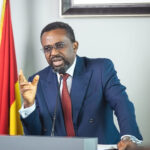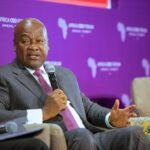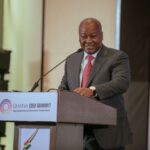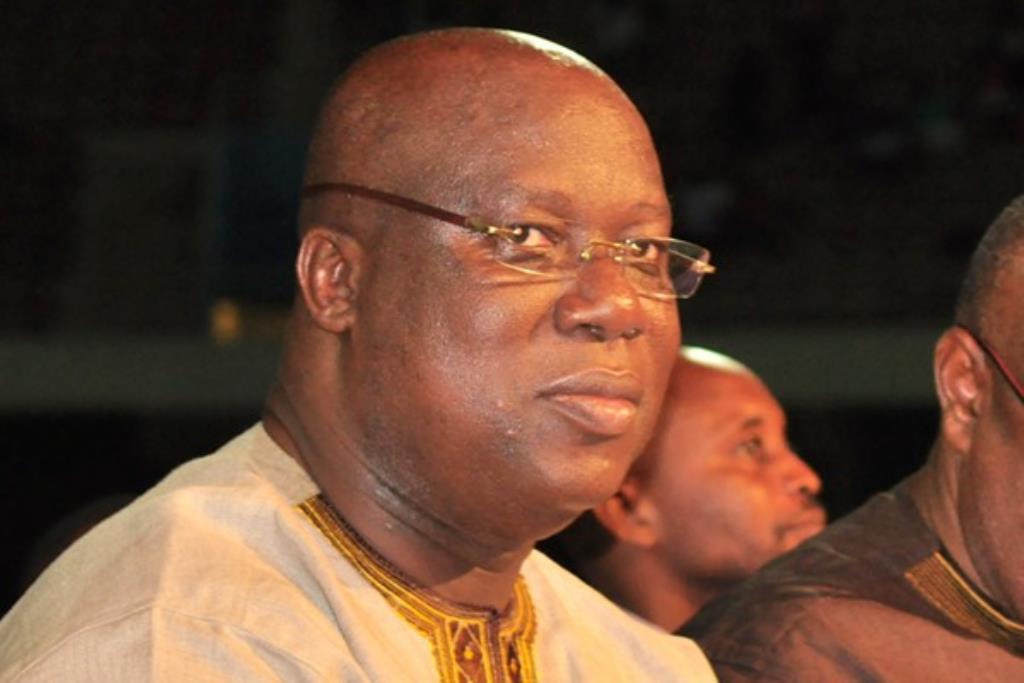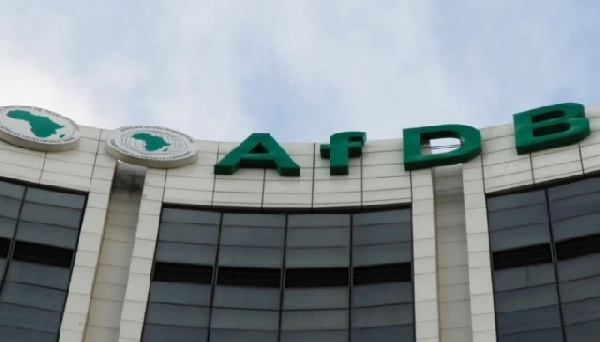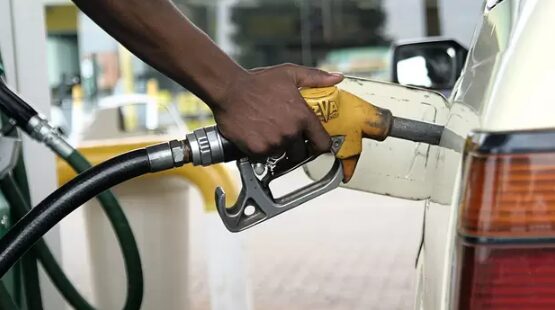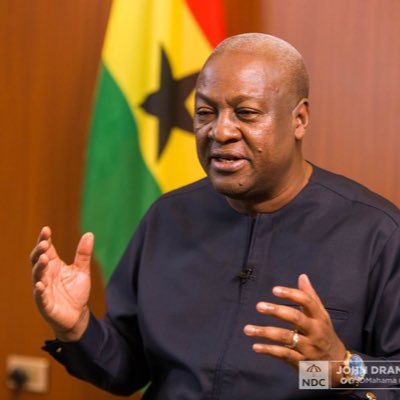President John Mahama has unveiled an eight-point recovery plan aimed at rebuilding Ghana’s economy through fiscal discipline, enhanced transparency, and renewed collaboration with the private sector.
Addressing the 2025 Ghana CEO Summit in Accra, the President said the new strategy is designed to correct past mistakes, restore investor confidence, and lay the groundwork for long-term, sustainable development. The summit brought together top government officials, business leaders, and investors under the theme: “Leading Ghana’s Economic Reset: Transforming Business and Governance for a Sustainable Futuristic Economy.”
Flanked by key economic players, including Bank of Ghana Governor Dr Johnson Asiama, Labour Minister Abdul-Rashid Pelpuo, and Senior Economic Advisor Seth Terkper, President Mahama said the country’s recent economic collapse was avoidable.
“Mismanagement after my previous administration contributed to Ghana’s first-ever debt default,” he told the audience. “It weakened the private sector and damaged investor confidence. We must now rebuild with discipline and foresight.”
Among the highlights of his plan is a commitment to see Ghana through the remainder of the IMF Extended Credit Facility programme, with a planned exit by 2026. This would be followed by adoption of a Policy Support Instrument to ensure long-term fiscal responsibility.
Future borrowing, the President noted, will be strictly tied to commercially viable projects with measurable returns, rather than politically motivated spending. Proposed amendments to the Public Financial Management Act would make contributions to sovereign funds legally binding, while local governments would be permitted to raise infrastructure bonds to address regional development needs.
In a bid to tackle Ghana’s mounting arrears, Mahama pledged to settle verified debts following the next Auditor-General’s report, and to enforce tighter controls on new spending to avoid recurring liabilities. He also announced the full implementation of a Treasury Single Account and real-time budget monitoring tools to boost transparency in public finance.
The President said Ghana Exim Bank would be repositioned to drive exports in non-traditional sectors, support agro-processing, and enhance access to capital for small- and medium-sized enterprises. This, he argued, would not only support job creation but also help stabilise foreign exchange earnings.
Reiterating Ghana’s ambition to become West Africa’s commercial and digital hub, Mahama said the government would continue leveraging opportunities under the African Continental Free Trade Area (AfCFTA) to attract investment and grow local industries.
“We must use innovative financing models like public-private partnerships to complete critical infrastructure projects—without resorting to excessive borrowing,” he added.
In a move to foster continued dialogue between government and the private sector, Mahama also announced the formation of a National Business Consultative Platform, which will meet twice a year to ensure policy alignment with industry needs.
Meanwhile, Bank of Ghana Governor Dr Asiama struck a cautiously optimistic tone. He reported that inflation had dropped to 21.2% in April, and projected a return to the central bank’s target of 8±2% by early 2026. The cedi, he noted, had appreciated 24.1% against the dollar so far in 2025—an outcome he attributed to better remittance flows and stricter market oversight.
“Our real sector indicators suggest economic activity is picking up, driven by exports, construction, and improved access to credit,” Dr Asiama said.
The Governor announced structural reforms, including a new policy that requires banks to hold reserves in the same currency as their liabilities, effective 5 June. Additional plans include the regulation of Virtual Asset Service Providers by September, the launch of Open Banking guidelines, and efforts to revive domestic capital markets.
Dr Asiama also proposed a “CEO Manifesto” with four core pillars: innovation, talent investment, value-added exports, and strong corporate governance. He revealed the BoG would create a new CEO Forum to institutionalise industry engagement, mirroring global models such as the US Federal Reserve’s regional councils.
As Mahama put it: “The time has come to lift the gloom, restore confidence, and build again.”

